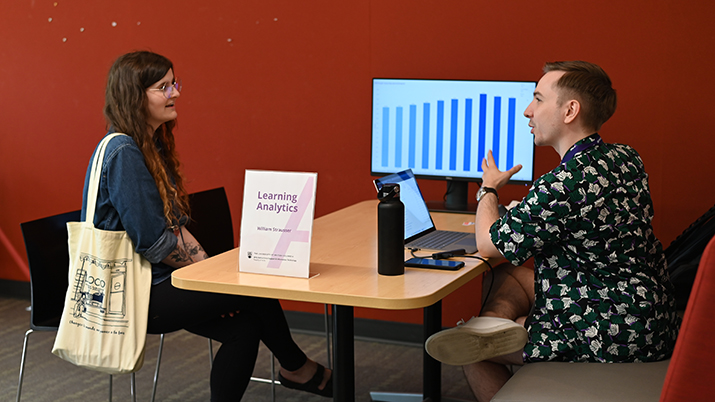

“Students participate in an open and collaborative community learning project that permits participants’ active involvement in research-intensive modes of narration, reading and writing that constitute a generative form of knowledge mobilization and importantly, citizenship.”
–Janice Stewart, GRSJ Instructor and Undergraduate Program Chair
Back Story
GRSJ 224 is a Flexible Learning Pilot Project linked with a popular undergraduate course offered by the Institute for Gender, Race, Sexuality and Social Justice (GRSJ). Giving UBC students the opportunity to experience the benefits of flexible learning is important because, as a design approach, flexible learning optimizes students’ engagement with course outcomes. The benefits of flexible learning include: increased participation in reflections on readings, engaging in scholarly knowledge-sharing concerning readings, participating in creating knowledge that adds to the scholarship, creating a community of learners and enhancements to academic writing.
This Flexible Learning curriculum development project entails the development of a pedagogic infrastructure of learning objects that will be used in both on-campus, and online sections of this popular course. This project makes use of and leverages socially networked digital technologies to enhance learning and participation in this course.
How do you use UBC Wiki in the GRSJ224 Flexible Learning Project and what made you decided to do this?
The GRSJ 224 Flexible Learning project WIKI increases and makes use of existing digitally networked environments that support educationally significant collaborative research, networking, critical thinking, and multimedia literacy. GRSJ 224 learning objects include video, blogs, and a WIKI to support a pedagogic infrastructure that will help build core research and intercultural competencies. The inclusion of socially networked digital technologies allows the classroom to progress beyond the boundaries of official knowledge. Official knowledge represents a very partial aggregate of culture because it is mapped in ways that typically exclude members of marginalized groups. Participatory technologies, such as the GRSJ 224 WIKI, enable active relationships to public knowledge and new forms of educational innovation and participatory citizenship.
What has been the result?
In keeping with the goals of UBC’s “Place and Promise” strategic plan, GRSJ 224: Gender, Race, Sexuality and Social Justice in Literature fosters “transformative student learning through outstanding teaching and research, enriched educational experiences, and rewarding campus life” and encourages participants to seek every opportunity to share that learning. Students participate in an open and collaborative community learning project that permits participants’ active involvement in research-intensive modes of narration, reading and writing that constitute a generative form of knowledge mobilization and importantly, citizenship.
What are some of the challenges you’ve faced and is there anything about your approach you would improve or change? Do you have any advice for instructors hoping to implement this in their course?
The GRSJ 224 Flexible Learning project has run very smoothly. One small challenge that I have faced is helping students to get comfortable with the WIKI interface . The WIKI interface has a steep learning curve and students manage this hurdle with the resources that ArtsIT provides. Youtube video instruction works slightly better than text-based instruction. It is really important to work on the structure of the WIKI to keep information visually simplified. I have tested several interfaces and it makes a big difference to have an easy look and feel. Students enjoy the easy edit and formatting features once they start to use the WIKI. Quickly, students begin to engage, edit and participate in shaping the work of others.


